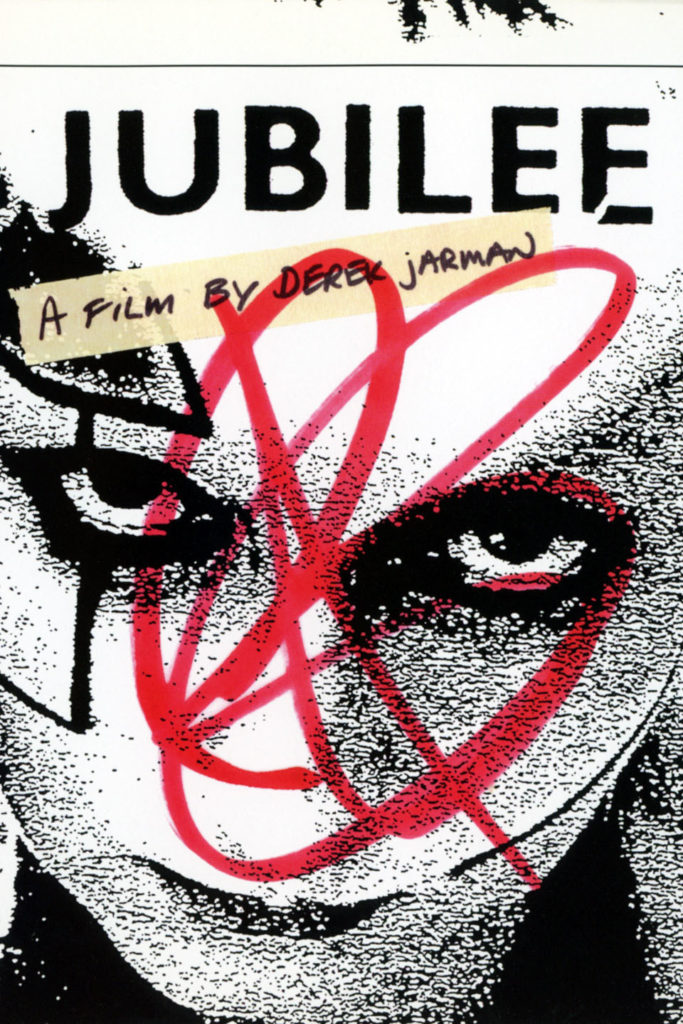
Ministry of Film Presents: Jubilee
Sunday June 24th at 7:00pm
When Queen Elizabeth I asks her court alchemist to show her England in the future, she’s transported 400 years to a post-apocalyptic wasteland of roving girl gangs, an all-powerful media mogul, fascistic police, scattered filth, and twisted sex. With Jubilee, legendary British filmmaker Derek Jarman channeled political dissent and artistic daring into a revolutionary blend of history and fantasy, musical and cinematic experimentation, satire and anger, fashion and philosophy. With its uninhibited punk petulance and sloganeering, Jubilee brings together many cultural and musical icons of the time, including Jordan, Toyah Willcox, Little Nell, Wayne County, Adam Ant, and Brian Eno (with his first original film score), to create a genuinely unique, unforgettable vision. Ahead of its time and often frighteningly accurate in its predictions, it is a fascinating historical document and a gorgeous work of film art.
Derek Jarman
Derek Jarman, British filmmaker crafted highly personal avant-garde motion pictures through which he sought to “demystify homosexuality” and explore human experience from a uniquely gay perspective. While Jarman often used classical plays or historical personages as the basis for his work, it was said that all of his films were in some way “about” homosexuality. Jarman studied at King’s College, London, and the Slade School of Fine Art. He had some success as a painter and as a set designer for the Royal Ballet, the English National Opera, and other arts companies. After designing sets for two films by the controversial director Ken Russell, Jarman tried his hand at moviemaking. The result, Sebastiane (1975), was a low-budget portrait of the early Christian martyr and featured male nudity, homoerotic themes, and Latin dialogue in a Super-8 format. Jarman’s other films (many of which were shot on a shoestring budget with Super-8 or 16-mm rather than conventional 35-mm stock) include Jubilee (1977), The Tempest (1979), Caravaggio (1986), War Requiem (1989), Edward II (1991), and Wittgenstein (1993). Blue (1993), which was made when Jarman was nearly blind, featured an unchanging plain blue screen and a spoken narrative of the director’s own thoughts and feelings about his battle with AIDS. Glitterbug, a compilation of fragments from old home movies that was commissioned for television, was previewed shortly before his death. Jarman also wrote several books, including two volumes of memoirs, Modern Nature (1992) and At Your Own Risk (1992).
